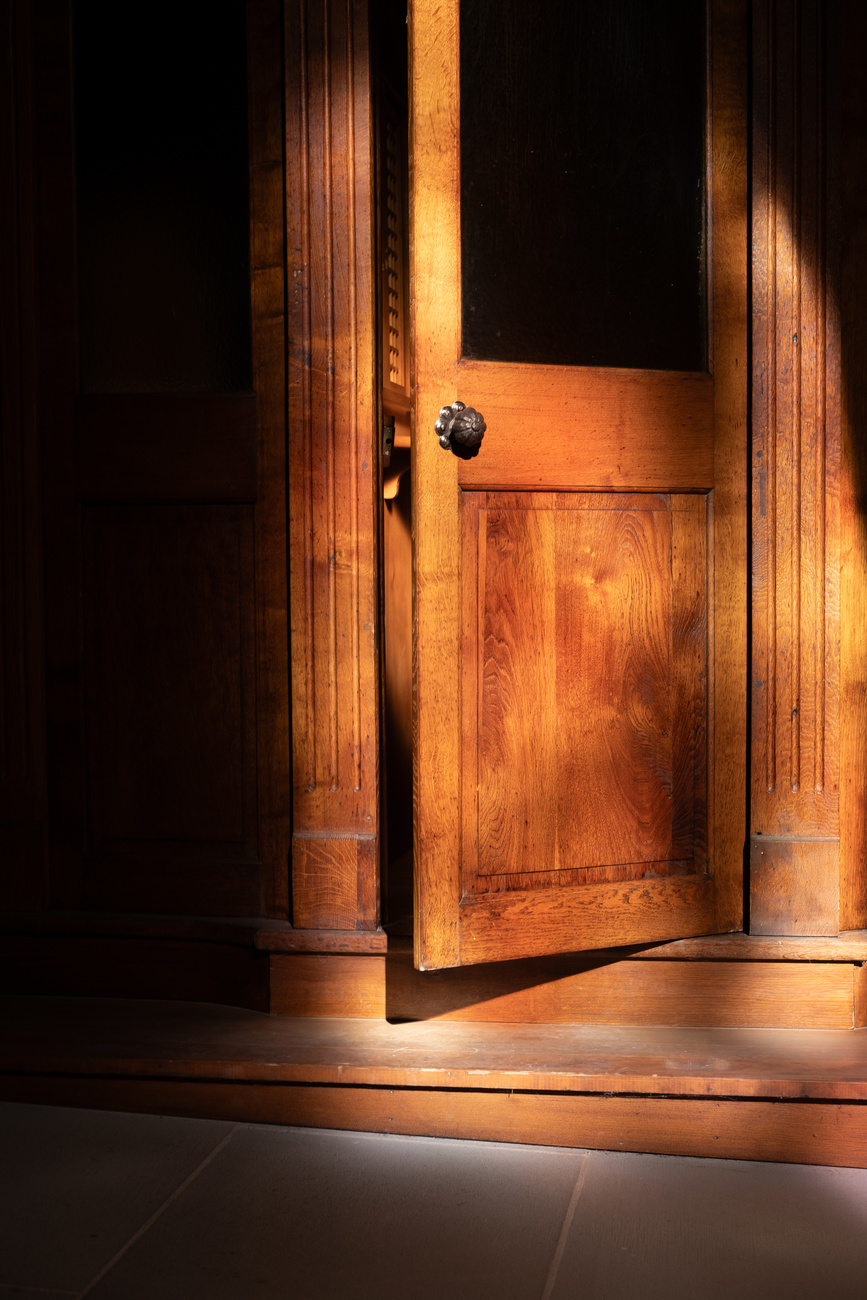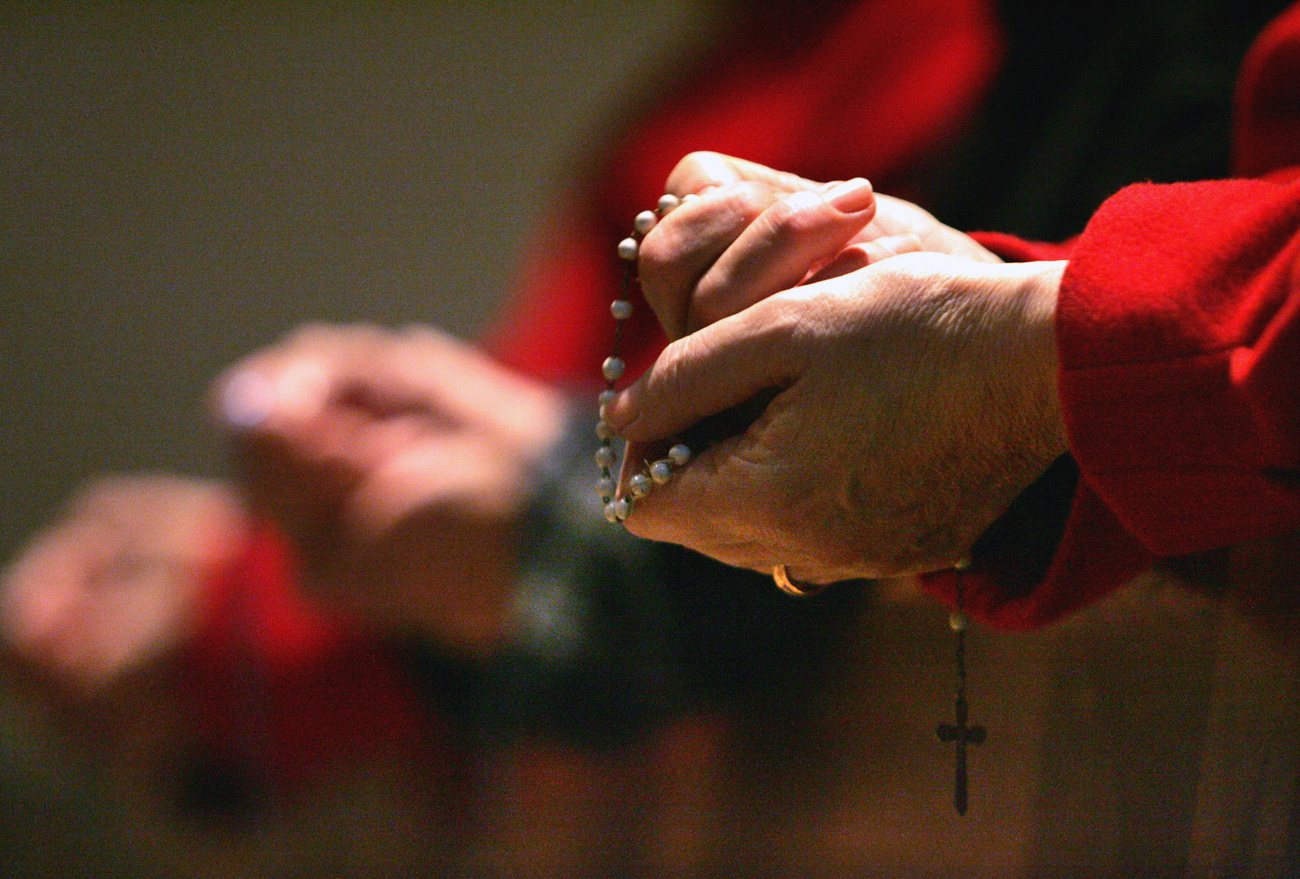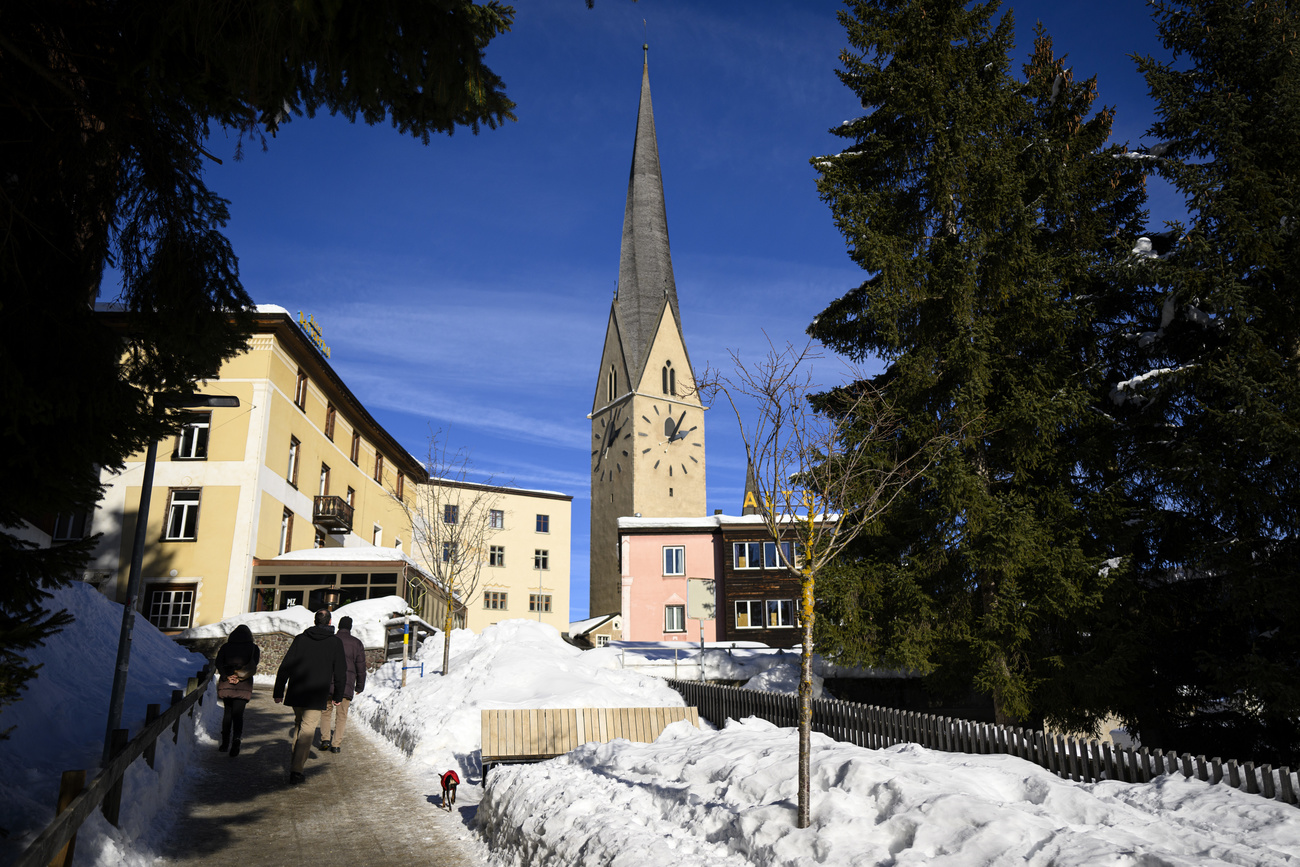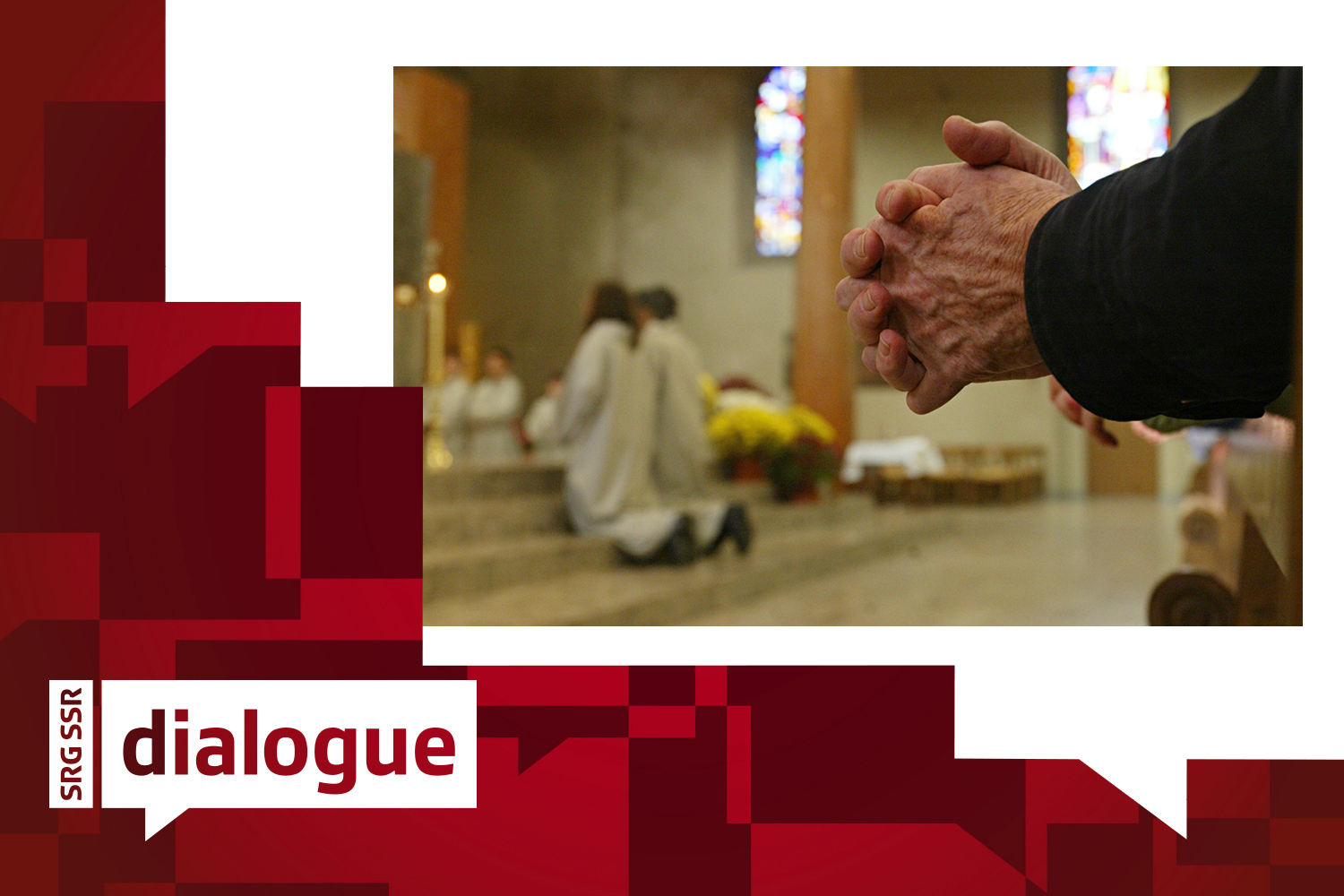
Over one hundred new alleged victims of Catholic Church abuse

Six months after the publication of a study by the University of Zurich on abuse in the Catholic Church in Switzerland, more than 160 further alleged victims have come forward to the dioceses and victim support centres.
The diocese of canton Basel published its latest figures on Tuesday. Since September 2023, the diocese has received 92 reports of abuse from church clergy. In other dioceses, the publication of the pilot study did not lead to a similar large number of reports, the Keystone-SDA news agency was told.
In total, four dioceses reported just under 70 victims. This does not include the diocese of Lugano in canton Ticino, which will publish its figures on Wednesday.
The Swiss Bishops’ Conference (SBC) itself did not register any reports, as it is not a reporting centre. However, it has announced a national centre for each Swiss national language. This project that is already underway.
The Protestant Reformed Church in Switzerland does not keep statistics on cases of abuse. However, it too is currently working on a preliminary study.
Cases from the archives
The study published in September 2023 by the University of Zurich on cases of abuse in the Catholic Church in Switzerland has reignited a debate that has been going on for more than 25 years. The Keystone-SDA news agency looks into its archives on the cases of allegations over the years.
The debate began in North America and Ireland in the mid-1980s. Switzerland picked up the debate at the end of the 1990s, as cases of sexual assault by members of the church increasingly came to light.
Several Catholic priests were convicted, such as two former priests from canton Ticino in 1998 and 1990. In 2001 a paedophile priest in canton Jura was sentenced to three months in prison. In March 2002, a Catholic priest in St Gallen was accused of sexual offences with children. He was arrested, confessed and resigned from his post.

More
What next after Swiss Catholic Church sexual abuse revelations?
In the same year, the Swiss Bishops’ Conference announced that a task force was assigned to look into the problem. The Bishops’ Conference also issued guidelines against sexual assault in pastoral care for the first time – including a requirement for bishops to be consulted when victims come forward. The sexual assault in pastoral care committee was also founded, which recorded reports from victims and perpetrators within the church in the years that followed.
`Leave the church alone´
However, the SBC wanted to “leave the church alone” at the time. A spokesperson said: “The cases of priests convicted of sexual abuse in Switzerland can be counted on one hand, and there are proportionally more fathers in families who are paedophiles.” In 2002 the diocese of St Gallen was also the first in Switzerland to set up a specialist committee to combat sexual abuse.
For the first time in January 2008 a member of the Catholic hierarchy admitted responsibility in the case of a Swiss priest suspected of paedophilia. The diocese of cantons Lausanne, Geneva and Fribourg had known since 1989 that a Capuchin had abused at least one child, the official said in an interview with the newspaper Le Matin Dimanche at the time. However, the civil courts had never been informed. Instead, the suspect and partial confessor had been relocated to France.
In 2010 in the wake of new cases of abuse in Switzerland that had become public, the Abbot, Martin Werlen, in canton Schwyz called for the creation of a central register in Rome, in which accused church clergy could be recorded. The SBC refused, and a “blacklist” of abusive clergy in Switzerland was not created despite demands from the Swiss population and individual church members.
Guidelines revised several times
However, the SBC tightened its guidelines against sexual assault in pastoral care. The bishops undertook to only employ pastoral workers if they had received information from the previous employer about the history of the person concerned.
In that same year, 146 cases of abuse were reported to the sexual assault in pastoral care committee. According to the SBC, new victims and perpetrators of sexual assaults in the double-digits were reported in each of the following years.

More
Why Switzerland is losing its religion
In 2014 the SBC brought the third edition of the guidelines against sexual abuse into force. The guidelines now applied not only to those working directly in pastoral care, but also to all people working in various areas in the church environment.
Between 2010 and 2015, around 20 criminal proceedings were opened against priests and Catholic monks for sexual abuse, the SBC said in response to an enquiry from the SDA news agency at the time. This was despite the fact that the church had recorded 172 suspected perpetrators. Some of the suspects had already died, while others were “untraceable”.
By the end of 2018, 317 cases of abuse had been registered in Switzerland. The victims were mostly children and young people. The SBC further tightened the reporting obligation: in future, sexual assaults in the Catholic Church should always be reported to the authorities if there were indications of a criminal offence.
In April 2022, the Catholic Church commissioned a team of researchers from the University of Zurich to investigate the “dark chapter” of Swiss church history after the secret archives of the bishops were opened. The results of the study, published in September 2023, revealed more than a thousand cases of abuse since the 1950s.

More
Is the Catholic Church really going to investigate cases of sexual abuse?
Adapted from Italian by DeepL/mg/amva
This news story has been written and carefully fact-checked by an external editorial team. At SWI swissinfo.ch we select the most relevant news for an international audience and use automatic translation tools such as DeepL to translate it into English. Providing you with automatically translated news gives us the time to write more in-depth articles.
If you want to know more about how we work, have a look here, and if you have feedback on this news story please write to english@swissinfo.ch.

In compliance with the JTI standards
More: SWI swissinfo.ch certified by the Journalism Trust Initiative

























You can find an overview of ongoing debates with our journalists here . Please join us!
If you want to start a conversation about a topic raised in this article or want to report factual errors, email us at english@swissinfo.ch.